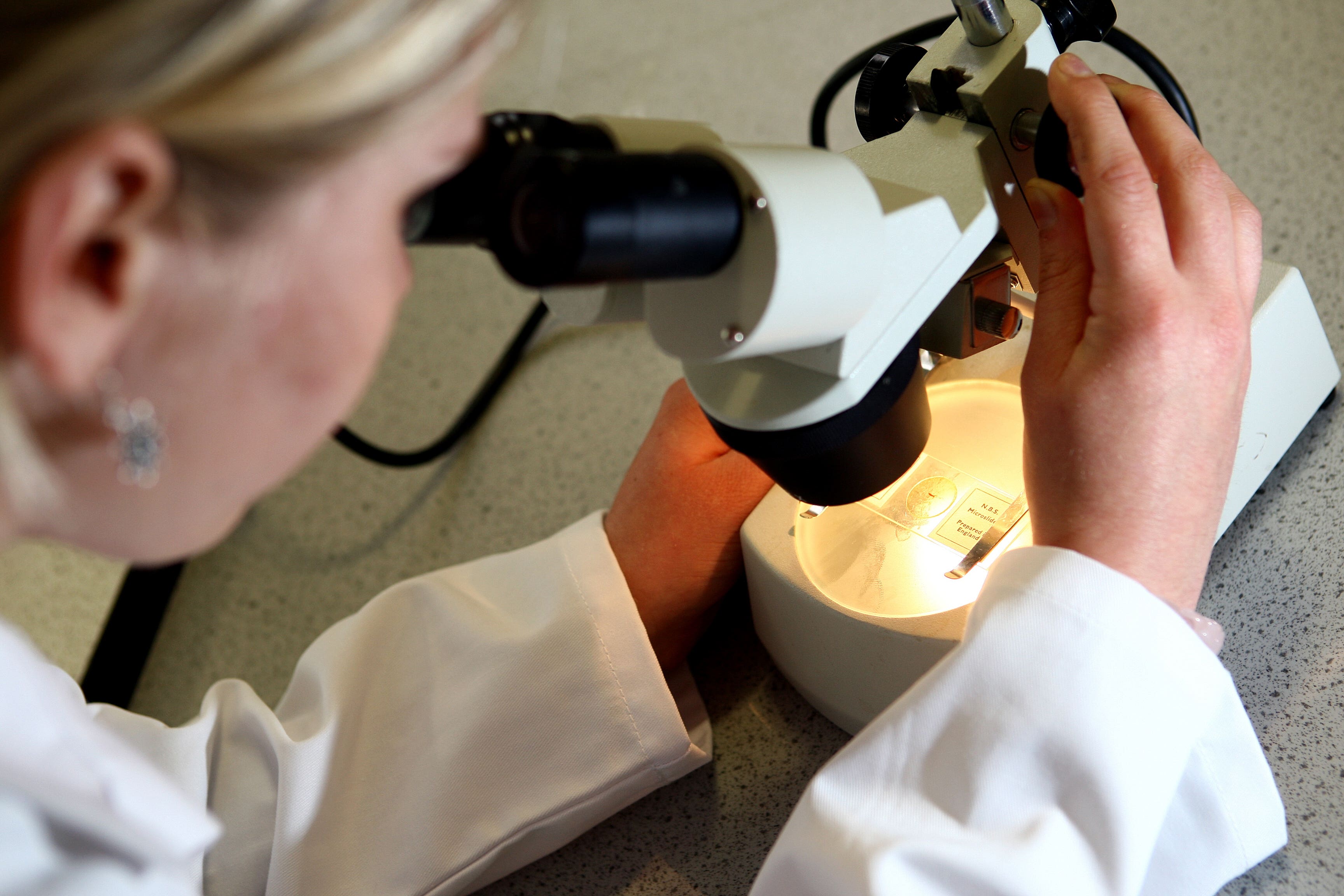A combination of genetic tests for a “very complex” blood cancer could accurately predict if the disease is likely to return within 18 months of treatment, a study has found.
This method picks up “hidden risks” traditional tests may miss, potentially benefiting thousands in the UK with multiple myeloma.
Multiple myeloma occurs when the bone marrow makes abnormal white blood cells, known as plasma cells, causing symptoms such as bone pain, headaches and muscle weakness.
It affects around 33,000 people in the UK, with about 6,300 new cases every year. The disease is considered incurable; while treatments achieve remission, many patients relapse, usually within 18 months.
Researchers at the Institute of Cancer Research (ICR) suggest offering traditional DNA tests alongside new RNA gene expression tests could detect patients at risk of early relapse.
DNA profiling is currently being used in specialist cancer centres and clinical trials.
It looks for genetic mutations in myeloma cells, which can determine how aggressive the disease is.

Meanwhile, the newer gene expression tests check how active certain genes are in cancer cells by measuring RNA, a type of molecule that carries instructions from DNA to make proteins.
Both tests are usually done using bone marrow samples.
Martin Kaiser, a professor in molecular haematology at The Institute of Cancer Research, London, and consultant haematologist at The Royal Marsden NHS Foundation Trust, said: “Multiple myeloma is a very complex disease.
“While current treatments can work very well for many patients, there are others who do not respond well and may relapse early.
“Some patients relapse early after treatment, even though they didn’t show any known high-risk signs at diagnosis.”
The study, published in the journal Blood, looked at data from 135 patients who took part in the MyelomaXI clinical trial.
All had the same treatment, along with detailed genetic testing.
The patients were tracked for seven years, and cancer returned in 18.5 per cent within 18 months of having a stem cell transplant.
Researchers suggest combining the two genetic tests would have predicted 84 per cent of these early relapses.

Prof Kaiser added: “Our findings show that RNA-based testing can uncover hidden risks in multiple myeloma that DNA tests alone miss.
“By combining DNA profiling with RNA-based testing, we could change how we diagnose and treat the disease, allowing us to personalise care and intervene earlier for patients at greatest risk.”
Professor Kristian Helin, chief executive of The Institute of Cancer Research, London, estimates early relapse “affects thousands” of patients in the UK.
“This exciting discovery marks a major advance in our ability to identify and treat high-risk multiple myeloma more effectively,” he said.
“By combining DNA and RNA testing, our researchers have created a far more accurate method of predicting early relapse in this disease, which affects thousands in the UK and many more globally.
“It is a powerful example of how precision diagnostics can transform patient care.
“Earlier and more reliable identification of high-risk patients allows clinicians to tailor treatment plans from the outset, with the potential to improve both survival and quality of life.
“It also enables more efficient use of healthcare resources, ensuring that the right patients receive the right treatments at the right time.”

Shelagh McKinlay, director of research and advocacy at blood cancer charity Myeloma UK, which helped fund the study, said: “We believe that advanced genetic testing has the power to be transformative in the treatment of myeloma.
“By pinpointing which patients are most likely to relapse and stop responding to currently available drugs, we can improve the lives of thousands of people affected by this incurable cancer.
“It is a critical factor in delivering a functional cure, a key pillar of the Myeloma UK research strategy. Professor Kaiser’s research is a major step in bringing forward truly personalised treatment and care for people with myeloma, and we’re immensely proud to be funding this work.”
From 2026, the Royal Marsden Hospital in London will become the first in the UK to offer a gene expression profiling test to multiple myeloma patients.
It is hoped it will allow medics to better understand how cancer cells behave before planning treatment.



